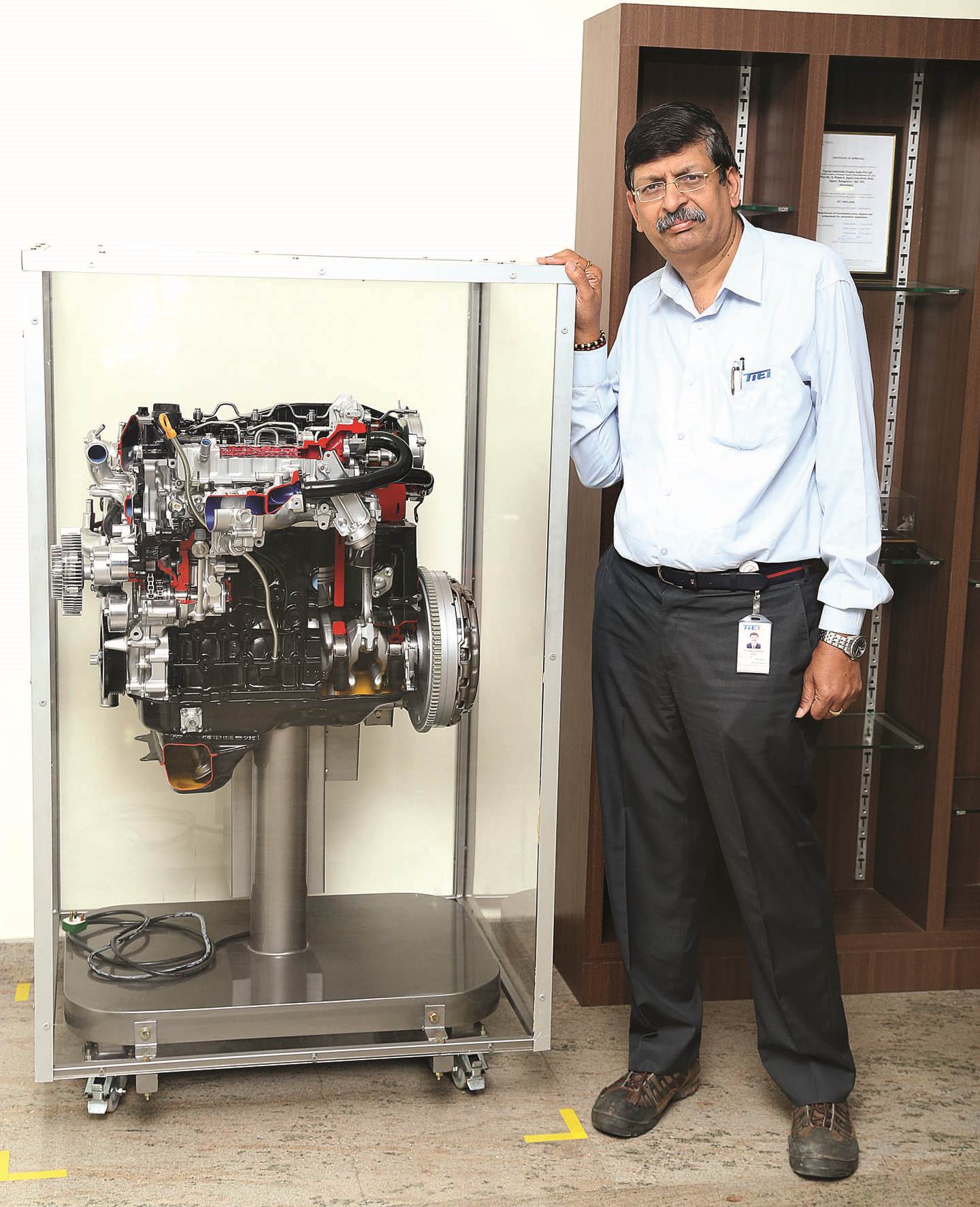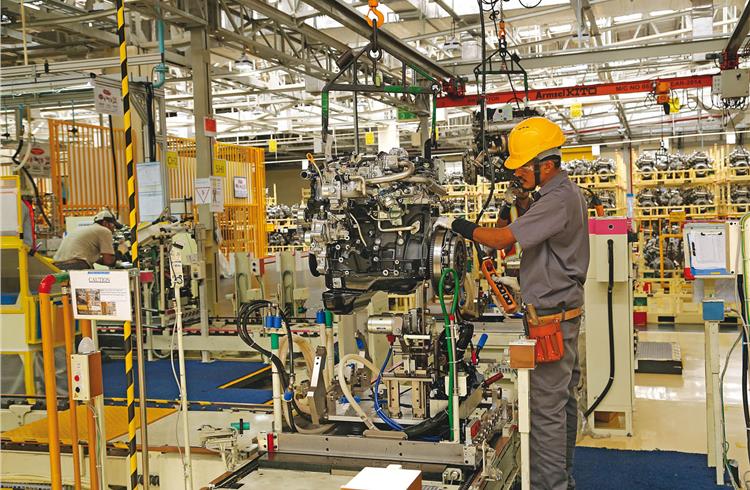Exclusive: Toyota Industries likely to make smaller-capacity diesel engines in Bangalore plant
Toyota Industries Engine India (TIEI), which inaugurated its first diesel engine plant in June at Jigani, in Bangalore, is exploring the potential of manufacturing smaller-displacement diesel motors in India as well.
Toyota Industries Engine India (TIEI), which inaugurated its first diesel engine plant in June this year at Jigani, Bangalore, is exploring the potential of manufacturing smaller-displacement diesel motors in India as well.
At present, it has started production of two global diesel (GD) engines – the 1GD-FTV-L4-DOHC 2.8L and the 2GD-FTV L4-DOHC 2.4L – which power the recently launched Innova Crysta MPV, both manual and automatic variants. The 2.8-litre diesel will also power the new Fortuner SUV.
The Toyota Etios sedan and Liva hatchback are powered by the 1.4-litre diesel which is currently imported from Japan.
“The 1.4-litre diesel engine is imported from Japan but yes it would be better to make it here but setting up an operation for it would be very capital intensive. Hence, market stability is very important. A lot of uncertainty has prevailed recently, so our parent company will formally study the current situation and probably discuss closely with customers if there is the necessity and then take a call,” TR Parasuraman, deputy managing director, TIEI, told Autocar Professional in an exclusive interaction on a visit to the company’s Bangalore facility.
To make the diesel motors cost competitive for carmakers, an indigenisation strategy is being pursued in a phased manner. In phase 1, 35 percent plus localization will be reached by the beginning of next year from close to 20 percent currently. “We would like to localise more, and are trying to optimize the advantages of the Indian supply chain while maintaining stringent quality standards of Toyota. At present we have localised 77 parts from 23 suppliers and will be further localising an additional 67 parts from 29 suppliers in the future,” reveals Parasuraman.

Could consider supply to other carmakers in India
The Indian car market is small car-centric. So for Toyota, this segment as well as MPVs, where it has a strong presence, is very strategic. Hence, if the possibility arises, then the small car market would be a strong potential for its diesel engines not only for captive use but also for supplying to other car manufacturers in India.
But Parasuraman admits that a lot of factors are involved in arriving at this decision as capacities in other plants of Thailand and Japan have to be considered as well: “No concrete plan but in case there is a possibility in future and there is a real necessity for it then maybe our parent company will study it.”
When Toyota has a global exposure, it will leverage the capacities in other plants and it may not be logical in terms of economies and scale to invest in such a factory in India.
TIEI’s first diesel engine facility has involved an investment of Rs 1,100 crore for a production capacity of 108,000 engines per annum. For expansion at the plant, a lesser production capacity will be involved and in turn a smaller level of investment. For instance, for small car engines, something around Rs 600-700 crore can be expected. Funding comes mainly from its parent company Toyota Motor Corporation.
In addition, Toyota has a petrol engine assembly facility at Bidadi in Bangalore where the 1.5- and 1.2-litre petrol engines for the Toyota Etios and Liva are made. Overall, the product portfolio includes the Innova Crysta that is diesel along with the Fortuner while the Corolla is powered by both the petrol and diesel motors, so the Toyota product offerings are largely diesel.
RELATED ARTICLES
Bosch hydrogen engine tech-powered truck to be on Indian roads this year
The global supplier of technology and services is betting big on both electromobility and hydrogen. While announcing the...
IIT Bombay inaugurates Arun Firodia Research Floor
IIT Bombay, one of India’s top technical and research institutions, honours Kinetic Group chairman Dr Arun Firodia, one ...
Maruti Suzuki expands capacity at Manesar plant by additional 100,000 units
New assembly line at Plant A expands total manufacturing capacity at the Manesar plants to 900,000 units per annum. Alon...





 By Shobha Mathur
By Shobha Mathur
 29 Jul 2016
29 Jul 2016
 19356 Views
19356 Views









